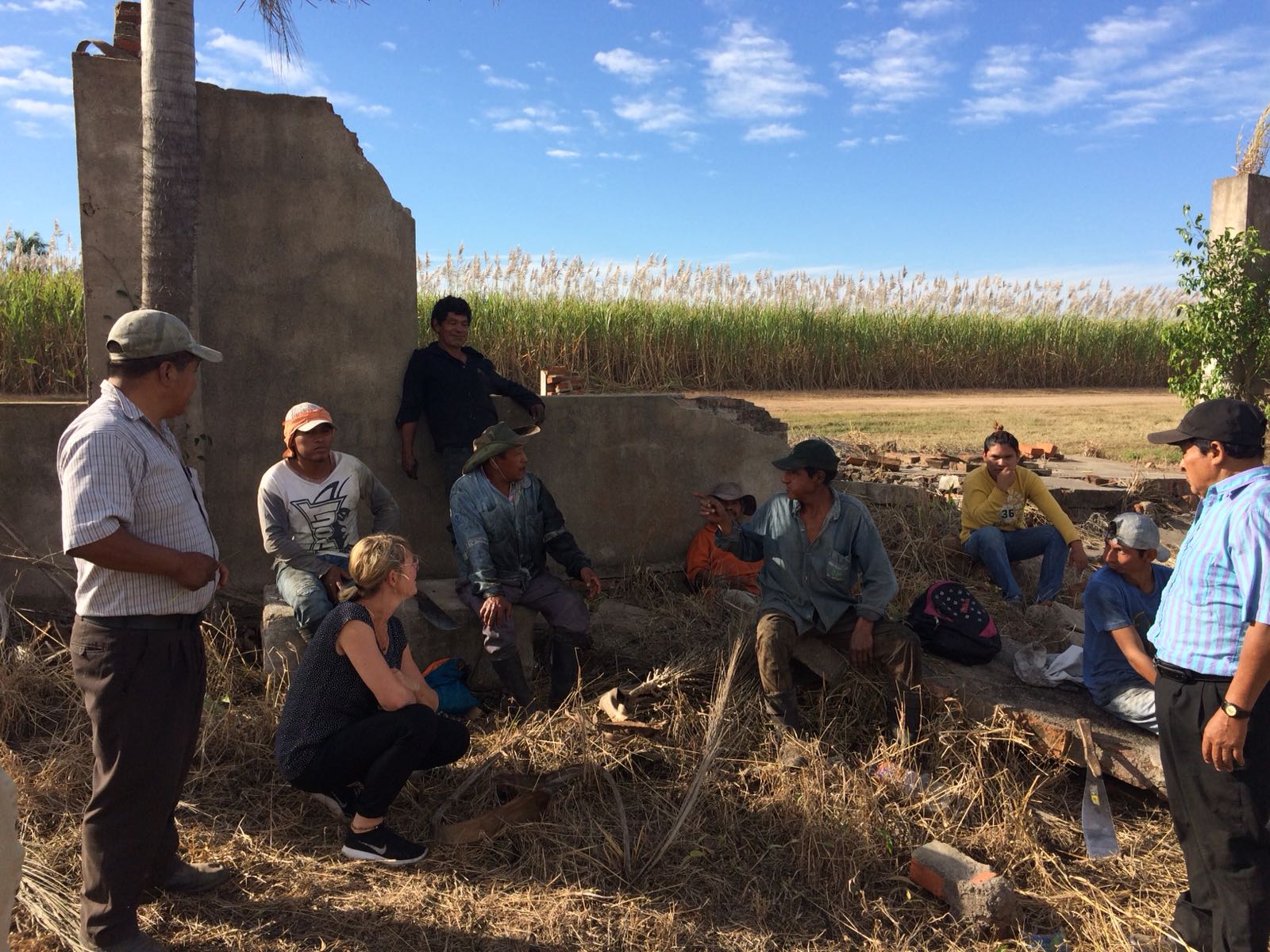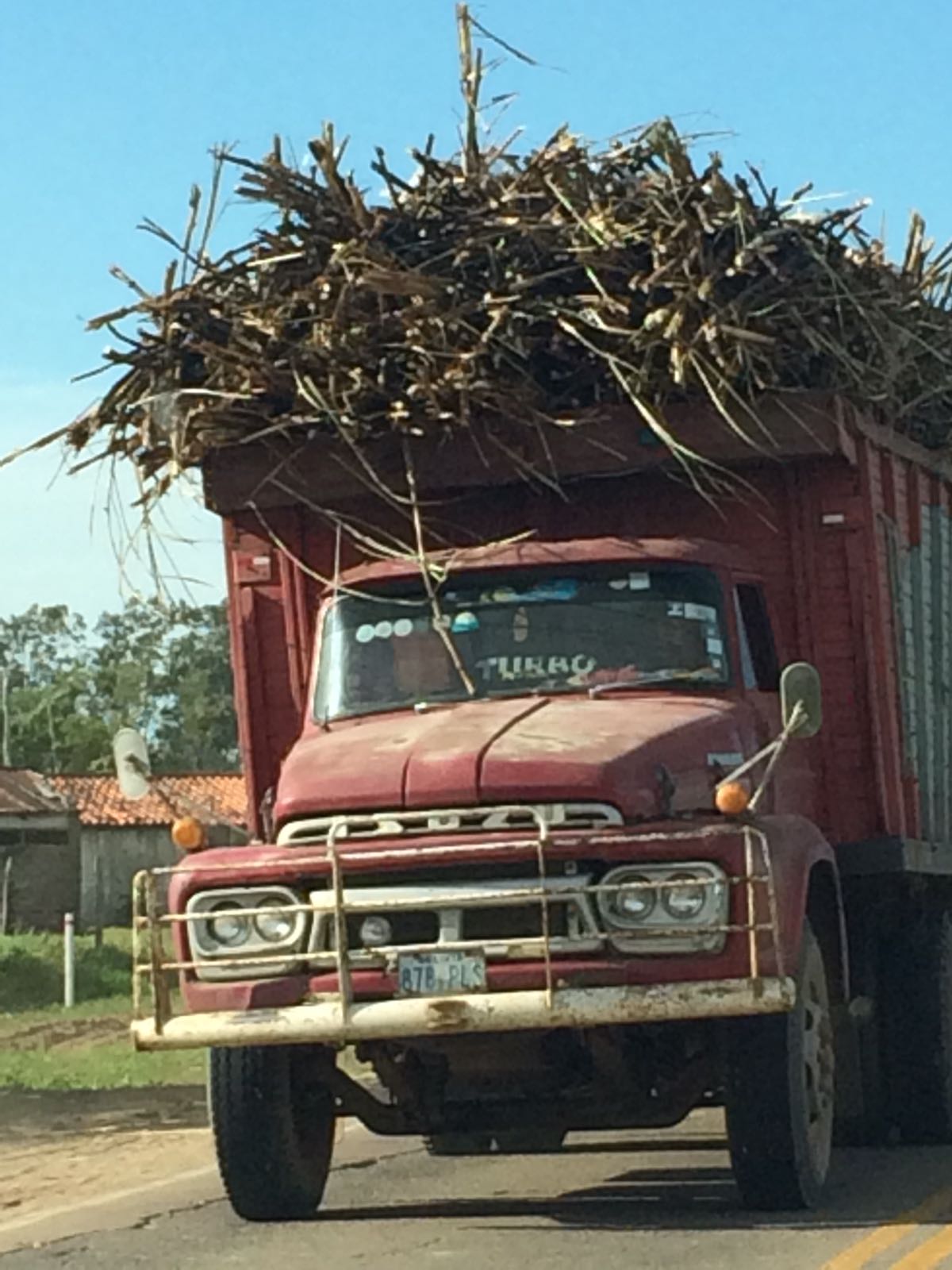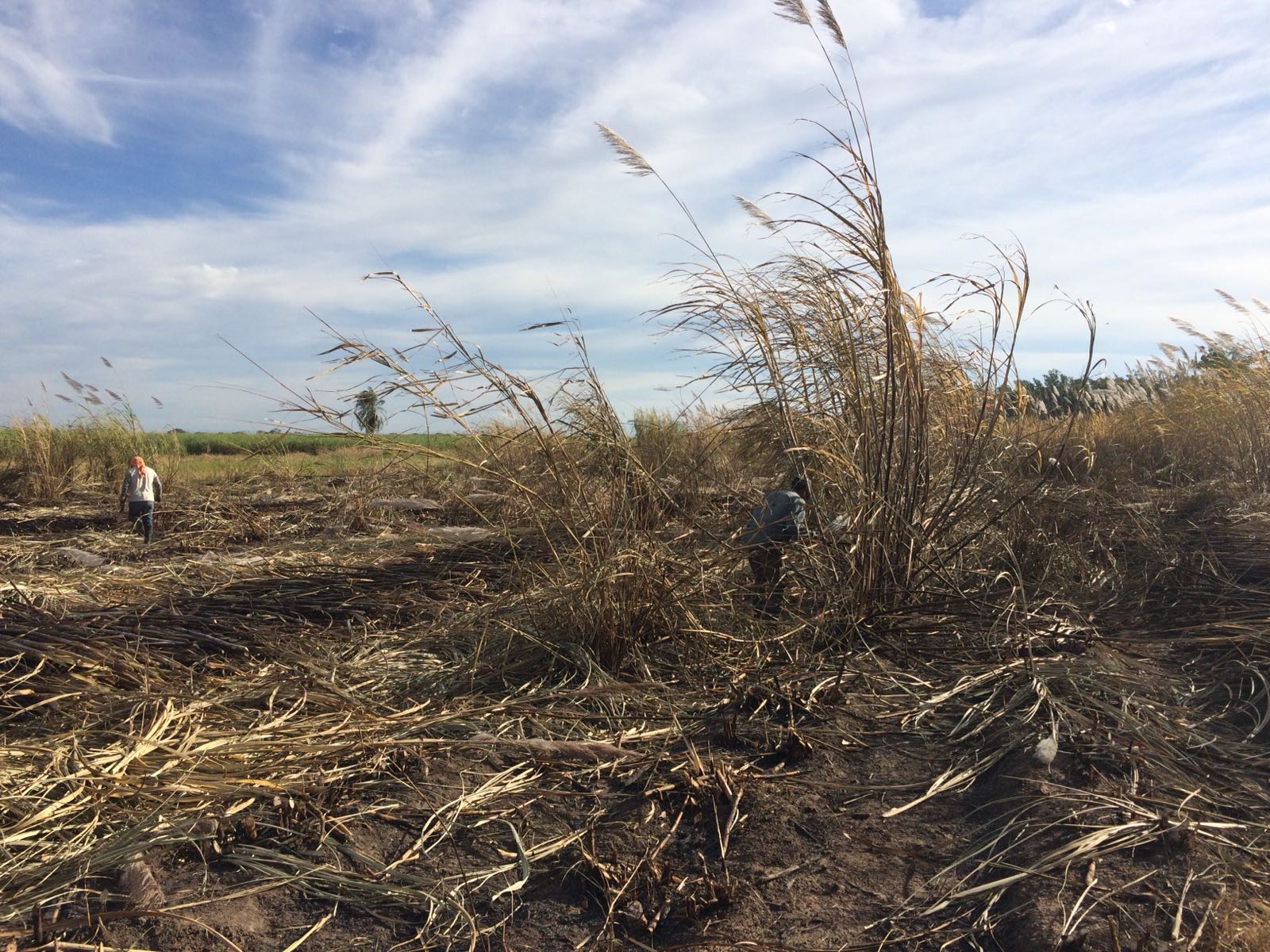Sugar is sweet but our lives are bitter
Blog Marionne Lips - work in progress Bolivia
"The difference could not have been greater. One day at a glossy forum, in presence of the press, many high level speakers and guests, and good food; the next day a visit to the sugar cane cutters in Montero. Two contrasting worlds, characteristic of a polarized society with plenty of remnants from the feudal era."
Marionne Lips, our regional coordinator for Latin America, writes these lines from Bolivia where, together with local trade unions, CNV Internationaal works on improving the situation of sugar cane cutters.

"The cane cutters I'm visiting have just had a break, and six of the men sit and rest on the remains of what once was a small house. There is no shadow anywhere and the single bottle of water they have for the entire day has long ago been emptied. Visibly tired, the men chew their coca leaves. After all, they still have hours of work ahead of them. One by one, they get up again. Huge trucks loaded with cane stalks hurtle past, and leave everyone behind in a huge cloud of sand dust. The men go back to work.
Without any protection, and with just their machete. They cut the metres-high sugar cane stems by hand and carry them to a central location, where they are picked up by a machine. In some places, the entire harvest is machine operated, but in the smaller independent companies this is often not the case. They don't have the resources for such huge investments, or their terrain is not flat enough for the machines. In the harvest months, the cutters often work 14 hour days, all for a monthly salary of 1600 bolivianos, about 225 euros.

Many plantations are located in remote areas. These men have left their families behind. During the harvest, for over four months they live in encampments, under poor conditions. They may be registered with social security and have access to medical care, or they may not. Some factories, like Guabirá, do require their workers to get social security coverage. The sugar cane cutters miss their families. Prostitution, with all its adverse repercussions, flourishes in these places.
Fortunately, there is an organization that defends these workers' rights: the Federation of Sugar cane cutters. The federation has a very modest office in the center of the town of Montero. It negotiates annual collective agreements with sugar cane entrepreneurs and the government. There is no internet; a connection is not affordable for this trade union. The walls of the meeting room display posters with the text: 'Sugar is sweet, but our lives are bitter'.

The contrast with the glossy forum could barely be greater. Still, there is a link here: At that forum, agreements were reached and documents signed for a tripartite collaboration between trade unions, companies and the government, on Health and Safety in the Workplace. The details still have to be worked out, but the willingness is there. So, what would it be like if the sugar cane cutters were to benefit from this? If those beautiful high-level agreements were to be actually applied to the precarious working conditions of these workers?
In this way, CNV Internationaal is making every effort to actually put social dialogue into practice, together with trade unions, employers, the government and other stakeholders, and thus to improve working conditions in the sugar cane sector.
Because, after all, does a coke not taste much better if the sugar in it has been produced fairly?"
Marionne Lips, Bolivia, June 2018
CNV Internationaal supports sugar cane cutters in Latin America